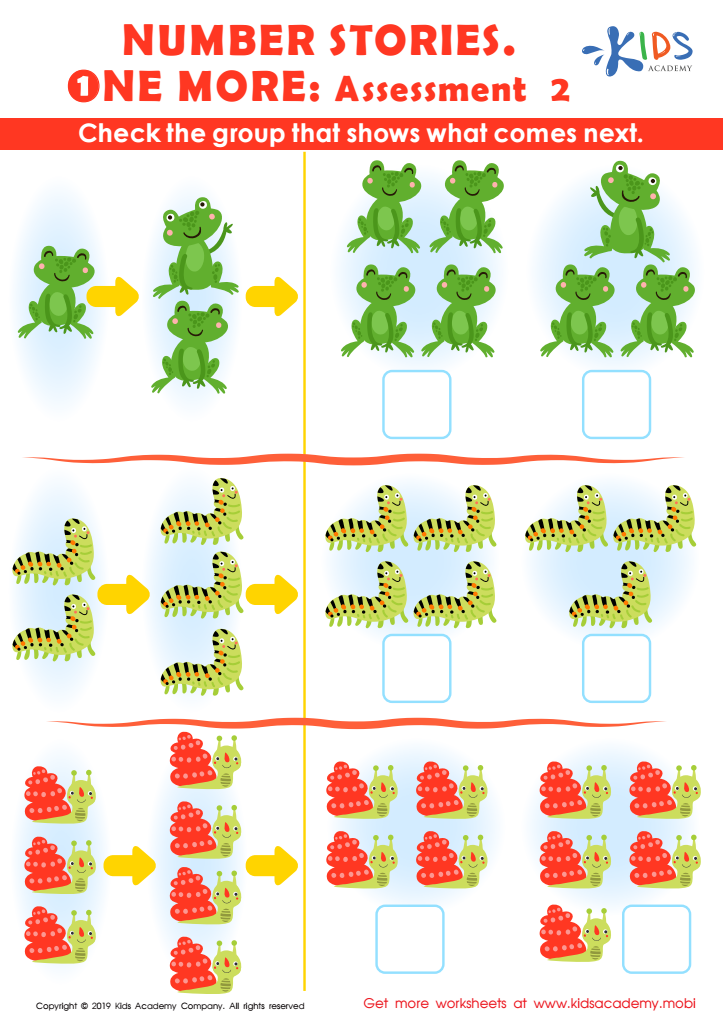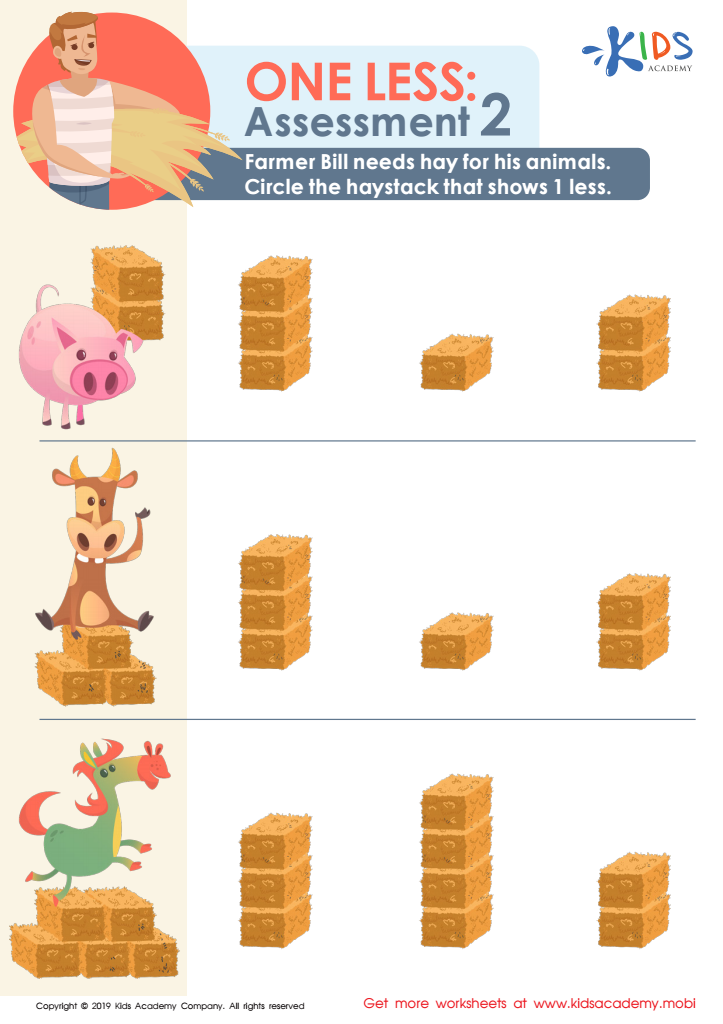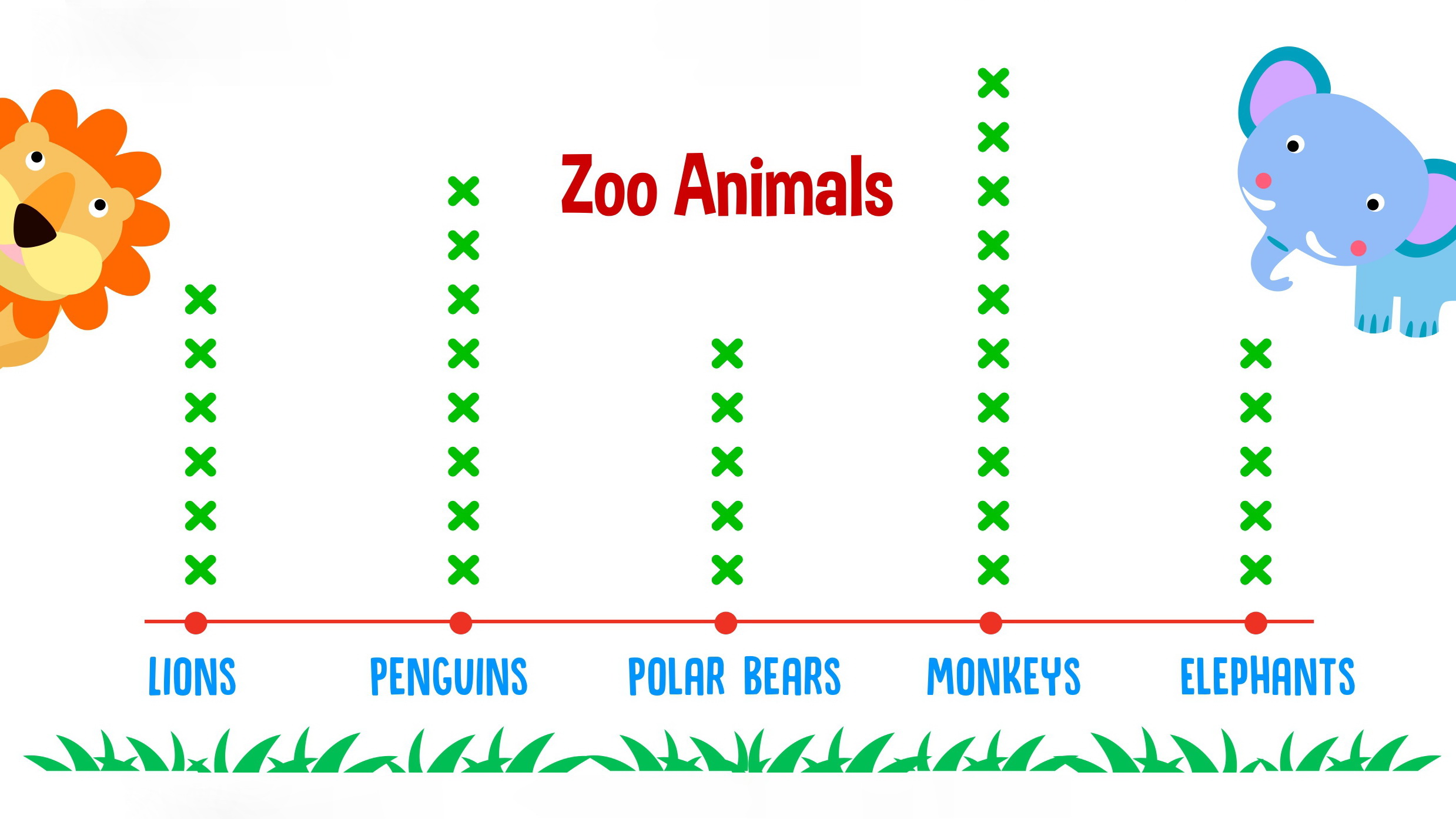Counting worksheets activities for Ages 3-5
2 filtered results
-
From - To


Number Stories One More – Assessment 2 Worksheet


One Less: Assessment 2 Worksheet
Counting worksheets activities are a foundational tool in early education, offering a plethora of benefits to young learners. These activities are meticulously designed to engage children in the fundamental concept of counting, which is a cornerstone in their mathematical journey. Engaging in counting worksheets activities not only helps children grasp the basics of numbers but also sets the stage for understanding more complex mathematical concepts in the future.
One of the most significant advantages of counting worksheets activities is that they enhance number recognition. Through repetitive practice, children become familiar with the appearance and order of numbers, fostering a sense of familiarity and comfort with mathematics right from the start. This early exposure is crucial for building a strong foundation in math, as number recognition is the first step toward developing arithmetic skills.
Furthermore, counting worksheets activities are instrumental in improving concentration and attention to detail. As children count objects, match numbers, or fill in missing numbers on worksheets, they learn to focus their attention and accurately complete tasks. This not only aids in their mathematical learning but also enhances their overall cognitive abilities, including memory and problem-solving skills.
Moreover, these activities introduce children to the concept of one-to-one correspondence, a fundamental mathematical principle that refers to the understanding that each object being counted corresponds to one number. This understanding is pivotal for the development of accurate counting skills and is effectively taught through counting worksheets.
In addition, counting worksheets activities are versatile and can be tailored to suit the learning pace and interests of each child, making them an invaluable resource for differentiated learning. Whether through colorful illustrations, engaging themes, or interactive challenges, worksheets can be customized to captivate children's interests, making learning both fun and effective.
In summary, counting worksheets activities are not just about learning to count; they are about laying a solid foundation for mathematical understanding, enhancing cognitive skills, and fostering a positive and engaging learning environment for young minds. As such, they are an indispensable tool in the education of young learners.
 Assign to the classroom
Assign to the classroom











